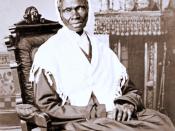Are there Gender Differences in Ethics in Public Relations? The public relations profession has seen a rapid increase in the number of women in the field in the past 20 years. This trend has generated interest in numerous issues dealing with the impact of women in the profession. The question has been raised: are there any gender differences in ethical attitudes and behavior in the field of public relations. Do men and women differ in their moral reasoning? Do they differ in their ethical decision-making? If so, what implications does this have on the profession? These are significant questions in public relations because practitioners often face ethical dilemmas. Wakefield stated that, ?For whatever reason, men and women studying public relations look at ethics through different-colored glasses.? (Grunig, Toth & Hon, 2001).
?Ethics are beliefs about right and wrong that guide the way that we think and act.? (Guth & Marsh, 2000).
Beliefs about right and wrong help to form guidelines about how people live their lives and in turn those guidelines become ethics codes. Ethical decisions are made every day for example, ?Do I tell her the truth or will it hurt her?? It is a part of daily life that makes up who people are and what they do. Behaving ethically is not only the right thing to do, but is also the smart thing to do in the business world. For public relations practitioners, there are several ethics codes that are important: societal codes, professional codes, organizational codes and personal codes. It is important to incorporate these ethics into the public relations process of research, planning, communication, and evaluation. (Guth & Marsh, 2000) Aristotle?s philosophy on ethics is often used as the basis and guideline to the study of ethics. In an article by David Martinson called...


